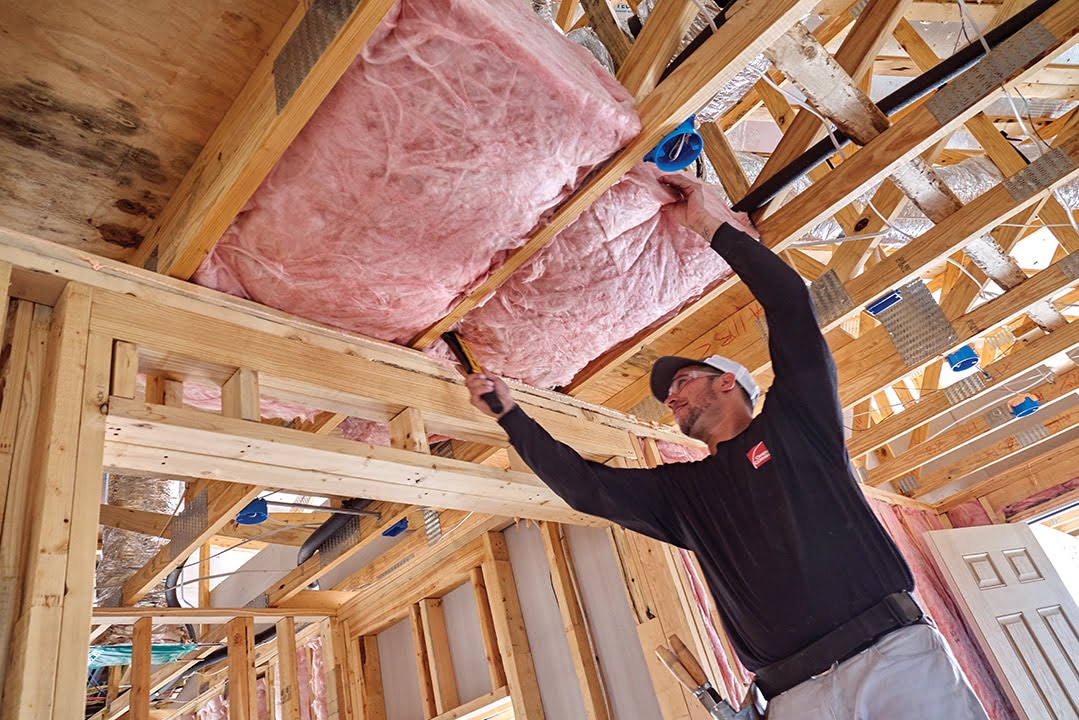In an era where everyone is looking for ways to cut costs and enhance energy efficiency, the role of insulation becomes vital. The insulation in our homes, which may often be overlooked, is a crucial aspect that can profoundly impact the environment and our wallets.
We’ll explore the costs related to home insulation and how properly insulating your home can save you money in the long run.
The benefits of investing in proper insulation are tangible. By reducing energy consumption, you save on monthly bills and contribute to a cleaner environment. Estimates suggest proper insulation can save homeowners 10-50% of their heating and cooling bills.
Let’s dive in.
What is Insulation?
Insulation refers to the materials used to slow down the transfer of heat. In homes, insulation is usually installed in walls, roofs, and floors to maintain a comfortable living temperature, keeping the heat inside during the winter and outside during the summer. The effectiveness of insulation is measured in R-values, where a higher R-value means more effective insulation.
The Costs of Poor Insulation
Lack of proper insulation can result in a considerable financial burden. With insufficient insulation, your house’s heating or cooling system must work harder to maintain a comfortable temperature. This leads to higher energy consumption and, consequently, a higher energy bill.
Some of the cost-related issues associated with poor insulation include:
- Increased Energy Bills: A poorly insulated home may lead to a 20-30% increase in heating and cooling bills.
- Frequent Maintenance: A harder-working HVAC system may require more regular maintenance, adding to the overall costs.
- Environmental Costs: Using more energy to heat or cool your home means increased greenhouse gas emissions, contributing to climate change.
The Investment in Proper Insulation
Investing in proper insulation might seem costly upfront, but it pays off in the long term. The costs will vary depending on the type of insulation used, the size of the area to be insulated, and the home’s location.
- Fibreglass Insulation: This popular option ranges from £0.30 to £0.55 per square foot.
- Spray Foam Insulation: This might cost between £0.80 to £1.60 per square foot but offers higher R-values.
- Cellulose Insulation: A more eco-friendly option that ranges from £0.55 to £1.00 per square foot.
Long-Term Savings
The benefits of investing in proper insulation are tangible. By reducing energy consumption, you save on monthly bills and contribute to a cleaner environment. Estimates suggest proper insulation can save homeowners 10-50% of their heating and cooling bills.
Additionally, some governments offer incentives, rebates, or tax credits for homeowners who upgrade or install new insulation, reducing the financial burden.
Conclusion
Insulation is pivotal in our daily lives, though it is often taken for granted. By understanding the costs associated with insulation and making informed decisions, homeowners can significantly reduce their energy bills and contribute to a more sustainable future.
Insulation is more than a one-time investment. It’s an ongoing commitment to efficiency, comfort, and environmental responsibility. Investing in proper insulation is an environmentally conscious decision and a financially savvy one. The upfront costs may seem high, but the long-term savings and benefits to the planet make it a decision well worth considering.

